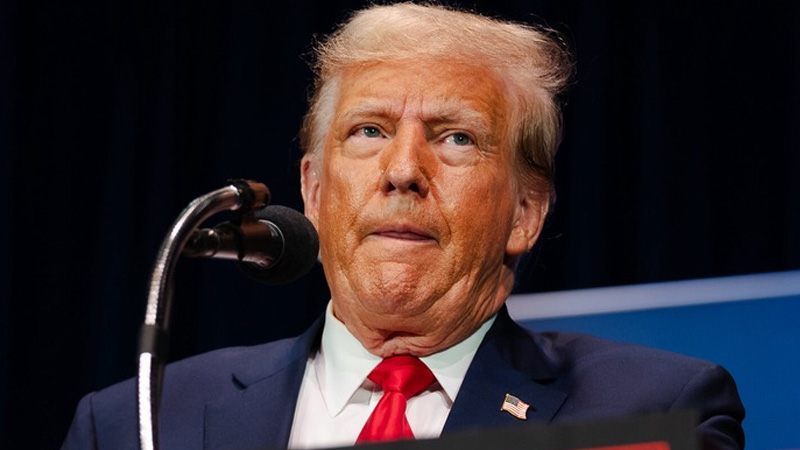Trump Warned Of Tough Consequences Over Photo He Shared Online

Photo Credit: Sophie Park /The New York Times
Former President Donald Trump has come under legal scrutiny for sharing an AI-generated image of pop superstar Taylor Swift that falsely depicted her endorsing his 2024 presidential campaign.
According to a report by Newsweek on Wednesday, August 21, 2024, the image, which Trump posted on his Truth Social account, shows Swift dressed as Uncle Sam, alongside the message: “Taylor Swift Wants You To Vote For Donald Trump.” Trump captioned the post with the words: “I accept!”
The image quickly drew attention, not only because Swift has been a vocal supporter of Joe Biden but also due to the potential legal ramifications for Trump.
Legal experts have raised concerns that the use of Swift’s likeness in this manner may constitute a violation of the Lanham Act, a federal statute that protects trademarks, brands, and images from being used without permission in a misleading or deceptive manner.
The Lanham Act, enacted in 1948, provides celebrities with a legal avenue to protect their images and brands from unauthorized use, particularly when such use could deceive consumers.
In this case, the argument hinges on whether the depiction of Swift could mislead voters into believing she supports Trump, despite her past endorsements of Democratic candidates.
Leslie Garfield Tenzer, a law professor at Pace University, explained the potential legal issues in an interview with Forbes.
“The Lanham Act—which Congress adopted quite some time ago—protects celebrity ‘brands’ and gives celebrities a cause of action against people or corporations that try to use the celebrity’s likeness to mislead consumers,” she said.
Tenzer noted that while voters are not typically considered “consumers” in the traditional sense, an argument could be made that they are being misled in a manner that the Lanham Act was designed to prevent.
Tenzer added that Swift could potentially issue a cease-and-desist order and pursue a lawsuit for misappropriation of her likeness.
However, she acknowledged the complexities of applying the Lanham Act in this context, where the audience is voters rather than consumers in a commercial setting.
Musicians have long fought to protect their work from unauthorized use in political campaigns. Larry Iser, a prominent music attorney and managing partner at KHIKS law firm, emphasized the importance of immediate legal action when an artist’s image or music is used without consent.
“When an artist discovers that their music, or their intellectual property, is being used without consent, it is always best to contact a legal representative ASAP in order to send a demand letter putting the infringing person or entity on notice that it is not OK,” Iser told Newsweek.
Iser pointed to the Lanham Act as a powerful tool for artists to combat unauthorized use, advising that they consider suing for right of publicity and false endorsement.
He has previously represented high-profile artists in similar cases, including Jackson Browne and David Byrne, who both successfully sued Republican candidates for unauthorized use of their music.
While Taylor Swift has not yet commented on the AI-generated image, the legal implications could set a significant precedent in the ongoing debate over the use of artificial intelligence and the protection of celebrity images.
As AI-generated content becomes more prevalent, the boundaries of existing laws like the Lanham Act may be tested and potentially redefined.
For Trump, the potential legal battle over the Taylor Swift image adds another layer of controversy to his 2024 campaign.
Whether or not Swift decides to pursue legal action, the incident highlights the complex intersection of technology, politics, and intellectual property rights in the digital age.





